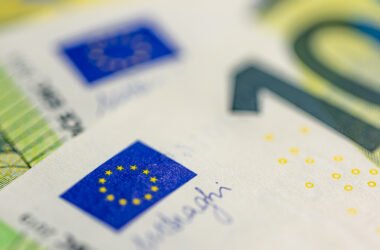Navigating social security contributions can be complex, particularly for expats or businesses operating across borders within the European Union (EU). To provide clarity, this article outlines the key aspects of social security portability in the EU, with a focus on Malta’s specific rules and practices. If you are an expat in Malta or planning to relocate, understanding these guidelines is crucial to ensure compliance and secure your benefits.
EU Social Security Coordination Rules
The EU’s social security coordination rules aim to simplify the mobility of workers and businesses across EU member states. These rules help determine the applicable legislation for individuals in cross-border situations, ensuring they are covered under a single social security system at a time. Once the responsible country is identified, it issues a Portable Document A1 (PD A1). This document certifies where the individual’s social security contributions must be paid.
Simplifying Compliance with the Self-Assessment Tool
To assist employers and self-employed individuals in determining their social security obligations, the EU has introduced a Self-Assessment Tool. This tool guides users through scenarios such as temporary postings, self-employment across multiple EU countries, and employment in maritime or aviation sectors. The results are based on the user’s input and serve as a helpful reference for meeting social security requirements in Malta or other EU states.
Bilateral Social Security Agreements
Beyond EU rules, Malta has bilateral social security agreements with several countries, ensuring continuity of benefits for expats moving between these jurisdictions.
Key Bilateral Agreements
- United Kingdom: Covers long-term and short-term benefits like pensions, sickness, and unemployment benefits.
- Australia, Canada, and New Zealand: Help fill gaps in contribution periods and ensure equal treatment for expats.
Special Considerations for Mariners and Cross-Border Workers
Mariners
For mariners working on Maltese-flagged vessels, social security contributions are typically paid in Malta unless the employer operates in the worker’s country of residence. Special provisions may apply for UK nationals under the Withdrawal Agreement or the EU-UK Protocol.
Cross-Border Telework
Malta adopted a framework agreement on cross-border telework in July 2023, addressing teleworkers splitting their time across EU member states. Employees working less than 50% of their time outside their employer’s jurisdiction retain social security coverage in the employer’s home state. If telework exceeds 50%, coverage shifts to the employee’s country of residence.
Social Security in Malta: Coverage and Benefits
Once it is determined that the Maltese social security scheme applies, individuals must apply for a social security number. Malta’s system offers a range of benefits, including sickness and maternity benefits, old-age pensions, invalidity pensions, unemployment and family benefits. Eligibility criteria and provisions vary, and expats are encouraged to seek advice tailored to their circumstances.
Exclusions and Important Notes
Certain benefits, such as special non-contributory cash benefits, are provided only by the individual’s country of residence. Additionally, taxation and medical assistance matters fall outside the scope of EU social security rules and must be addressed separately.
Looking Ahead: Malta’s Future in Social Security Coordination
Malta is working to establish new reciprocal agreements with strategic countries to enhance social security portability. These agreements will support expats moving between Malta and partner countries, offering better coordination and protection of benefits.
Need More Information?
For further assistance, Expatax offers expert advice on social security and taxation matters for expats in Malta, including relocation and visa assistance. Additionally, you can consult Malta’s Department of Social Security for official resources and guidance.
Conclusion
Understanding social security contributions is essential for expats working in Malta or across the EU. By leveraging tools like the A1 certificate, self-assessment tools, and bilateral agreements, you can ensure compliance and maintain your entitlements.








